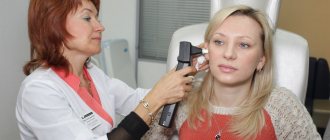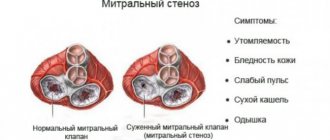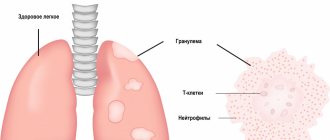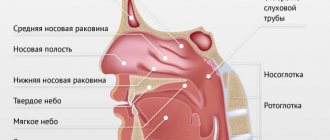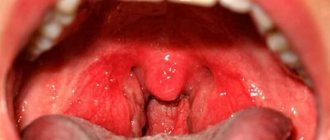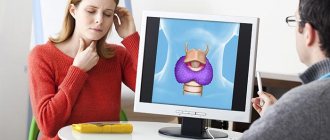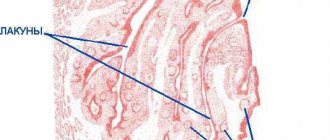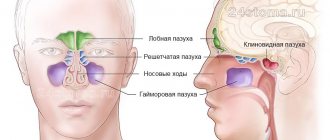Imagine the situation: you wake up one morning and... you hear absolutely nothing or almost nothing in one ear, or even both. Scary! Unclear! How did this happen? Where to go with a problem?
What you need to know about sudden hearing loss, whether it can be cured and prevented, says Zinaida Morozova, an audiologist-otorhinolaryngologist at MasterSlukh-Moscow LLC.
Can not hear anything!
Got an infection
Ear congestion can be caused by otitis media, sinusitis, or the common cold. The fact is that due to inflammation and swelling, the eardrum - a thin partition between the outer and middle ear - ceases to vibrate freely and transmit sounds.
It happens like this. The middle ear contains a small amount of fluid. Normally, it drains into the Eustachian tube, a canal that connects the ear and nasopharynx. When inflammation occurs due to infection, the lining of the middle ear and eustachian tube swells. The lumen for the outflow of fluid becomes too narrow and the middle ear bursts with excess ear secretion. This pressure is what prevents the eardrum from working normally.
How to find out?
Congestion can occur in one or both ears. With any infection, the temperature may rise and weakness may appear. Sinusitis - inflammation of the nasal sinuses - will add a runny nose and a bursting headache. A cold can have the same symptoms, plus a cough.
Otitis media will manifest itself with throbbing or shooting acute pain in the ear, pain when pressing on the tragus or on the bony protrusion behind the ear.
What to do?
Each of the three diseases in a mild form can go away on its own. But if the pain and temperature increase, there is a chance that you will have to see a doctor. Pain is treated with conventional analgesics. For complications, such as purulent otitis media, medical perforation of the eardrum may be required. This means your doctor will make a gentle cut in the membrane to help the pus drain out and free the middle ear.
Viruses as a cause of sudden hearing loss
According to scientists, in cases where the etiology of sudden hearing loss is not clear, the cause may be a viral infection, because Sudden hearing loss often occurs against the background of cold symptoms. How can a virus impair hearing? Scientists put forward two key versions. The virus can
- damage the hair cells lining the inner ear
- and (or) cause local circulatory disorders.
What about COVID-19? Yes, there is evidence that this virus can also cause sudden hearing loss
By the way, there are not so many viruses that can be associated with hearing loss. Many of them can be prevented through vaccination. This:
- Measles.
- Mumps (mumps).
- Rubella.
- Chicken pox.
Since all these viral diseases are characterized by a clear clinical picture, in most cases they can be identified and treated in a timely manner, preventing possible complications, including hearing loss.
Ear is clogged
The cause of muffled sounds may be sulfur plugs. For example, if you actively “clean” your ears with cotton swabs, there is a risk of compacting the wax into a dense clot. Then the cerumen plug will block the path for sounds and there will be a feeling of stuffiness in the ear.
Foreign objects can also get into your ears. This happens especially often in young children. Hearing may be interfered with by parts of toys, small batteries, cereals or insects.
How to find out?
Foreign objects in the ear can cause not only congestion, but also pain and dizziness. If an object has injured the ear, bloody discharge will appear. Wax may cause mild itching or noise in the ear.
What to do?
Contact your doctor. If you leave a wax plug or foreign object in the hope that it will go away on its own, inflammation may begin. If you try to get rid of the interference yourself, you can damage the delicate eardrum. The otolaryngologist will restore the ability to hear by washing the ear, using a special ear hook or tweezers.
What is sudden hearing loss?
The very name of this pathological condition, also known as sudden sensorineural hearing loss, suggests that it occurs either immediately or over several days. Every year it is registered in 1 in 5,000 adults, but this figure is clearly underestimated, because Not every such case comes to the attention of doctors.
Sudden hearing loss affects women and men equally, usually at the age of 45-55 years
Many people mistakenly attribute such hearing loss to wax impaction, sinusitis or seasonal allergies and do not turn to an audiologist, believing that everything will go away just like that. But in the case of sudden hearing loss, timely audiological care is more important than ever. Experts regard this condition as an emergency requiring immediate medical attention.
Damaged eardrum
A traumatic perforation of the eardrum is a tear or hole in the thin septum between the outer and middle ear. This may be due to the same foreign objects, severe head injury, rupture of the eardrum due to a purulent ear infection, or barotrauma, when the pressure inside the middle ear becomes greater than outside.
How to find out?
Damage to the eardrum causes sudden severe pain in the ear, dizziness and nausea, and discharge of blood, mucus or pus.
What to do?
Go to an ENT specialist. The perforation usually heals on its own. An important condition for healing is not to wet the ear and not to cause sudden changes in pressure inside the middle ear, for example, by deep and sharp breathing or sneezing. Antibiotics may be prescribed to prevent or treat infection.
During treatment, the doctor can close the hole in the membrane with a paper medicinal plaster, which stimulates the healing of the damaged area. In severe cases, tympanoplasty may be necessary - surgery to repair the eardrum.
Diagnosis of sudden hearing loss
If you suspect you are developing sudden hearing loss, consult an audiologist. He may perform pure-tone audiometry to determine if there is any hearing loss. This diagnostic test also helps determine the degree of hearing loss and the range of frequencies with which the greatest problems arise. After pure tone audiometry, your doctor may do other tests to determine the cause of your hearing loss, such as:
- Blood analysis.
- MRI.
- Balance test.
It is important to understand that sudden hearing loss is an emergency that requires urgent medical attention, so you need to contact an audiologist as soon as possible
Deafening with noise
You can become temporarily “deaf” from noise even in a short time. For example, after a concert or from fireworks. The nervous mechanism of sound transmission suffers from acoustic trauma. The hair cells of the inner ear, small muscles, or the organ of Corti, the sound analyzer, can be damaged. Typically, hearing loss from short-term deafening does not last long.
How to find out?
It is impossible to guess whether only one ear or both will be damaged. After an acoustic injury, tinnitus often appears - a ringing sound on one or both sides. At the same time, other sounds become difficult to distinguish. When noise-induced hearing loss becomes significant, high-frequency sounds are usually lost first. You can check at what frequency your hearing has become worse using audiometry.
What to do?
Move away from the source of loud sounds and give your ears a rest. The muffledness from short-term noise goes away on its own. If congestion in one or both ears does not go away for a long time, you should visit a doctor. The loud noise may have damaged the eardrum or other parts of the ear. Treatment will depend on the severity of the injury. In extreme cases, a hearing aid may be needed.
Symptoms of sudden hearing loss
Some people experience sudden hearing loss in the morning, immediately after waking up. Others do not pay attention to changes in hearing until they use it in action - talking on the phone or turning on the TV. In some cases, hearing disappears along with a noticeable “pop”, which cannot but cause alarm.
Patients describe symptoms of sudden hearing loss as a feeling of fullness in the affected ear, which may be accompanied by ringing in the ears (tinnitus) and dizziness
Took medicine
Some medications are ototoxic, i.e. damage the auditory nerve and cause temporary or permanent hearing loss. Hearing loss may be slight or complete, depending on the drug. Loop diuretics, antibiotics, chemotherapy drugs, and large doses of anti-inflammatory drugs such as aspirin and ibuprofen are ototoxic. The harmful effects of drugs depend on the amount and duration of use.
How to find out?
Look at the instructions for the drug: ototoxicity should be listed among the side effects. The medications damage both ears at once and additionally cause dizziness, imbalance, and tinnitus.
The real causes of sudden hearing loss remain unknown
Sudden hearing loss differs from other types of hearing impairment in several clinical features. In addition to the speed of development, its distinctive features include its idiopathic nature, which means spontaneous occurrence when the cause of the disease remains unspecified. It is possible to find out the cause of sudden hearing loss only in 10-15% of cases. Possible risk factors:
- Bacterial and viral infections.
- Diseases of the inner ear (for example, Meniere's disease).
- Migraine;
- Tumors (eg, acoustic neuroma).
- Side effects of certain medications.
- Neurological diseases (for example, multiple sclerosis).
- Traumatic brain injury.
- Autoimmune diseases (eg rheumatoid arthritis).
- Circulatory disorders (vasculitis).
Prerequisites for hearing loss in old age
As we see, there are a lot of reasons for hearing loss, and therefore the question of how to improve hearing in old age is by no means idle. But how to recognize the problem at an early stage?
Hearing loss develops gradually, so it is not immediately possible to suspect its presence. First, there is a decrease in the acuity of perception of sounds and speech. First of all, high-pitched sounds (for example, a child’s or a woman’s voice) begin to be perceived worse, but low ones are still distinguished just as well. In the future, the ability to distinguish words is lost if several people talk at the same time. For someone who is losing their hearing, they merge into an unintelligible hum.
People around you notice such changes even earlier. A person experiencing hearing loss is often asked to turn down the volume of the music or television. In addition, with progressive hearing loss, the patient’s behavior changes seriously: he often asks questions or asks to speak more slowly, which is why he is constantly irritated.
In addition, the following symptoms should alert you:
- pain in the ear;
- acoustic anomalies: noise, whistling, buzzing, etc.;
- fever, general malaise;
- nausea, dizziness;
- discharge from the ear.
Unfortunately, many simply ignore these warning signs, perceiving them as a temporary illness that can be overcome with a course of antibiotics. Due to such a negligent attitude towards their health, hearing loss in older people is becoming less treatable every year. Usually the patient consults a doctor only after many months (and more often years), when precious time has already been irretrievably lost.
Treatment of hearing loss in the elderly with folk remedies
When talking about how to improve hearing in old age, we cannot ignore alternative medicine. Of course, it is impossible to completely restore hearing even with a mild stage of hearing loss using traditional methods. Their use is justified only as aids to support the body and after mandatory consultation with a doctor.
Among the plants that have a positive effect on the hearing organs are red clover, eleutherococcus, sage, dill, rose hips, horsetail, immortelle, and licorice.
Eleutherococcus senticosus deserves special attention, as it has a beneficial effect on all systems that ensure optimal functioning of the hearing organs: nervous, circulatory, and immune. You can take it either as a tincture or in a more convenient tablet form.
Therapy of hearing impairments at the Stoletnik MC
We recommend that all guests and residents of Penza who want to have their hearing checked and receive qualified help in improving it, visit a medical clinic. It offers clients the highest profile specialists and a wide range of medical services in the field of otolaryngology. Including:
- removal of sulfur plug;
- Eustachian tube catheterization;
- blowing of the eustachian tubes according to Politzer;
- quenching with medicine;
- parameatal blocks;
- vibration massage of the eardrum;
- removal of a foreign body from ENT organs.
In case of hearing impairment of a neurological nature, a consultation is carried out by a specialist of the appropriate profile.
All necessary information on services and prices can be obtained by calling: +7 (8412) 999-395, 76-44-20. Your health is in good hands!
Treatment of hearing loss in older people with medication
Hearing loss in older people in the early stages can be treated with conservative methods. Complex therapy for hearing loss may include several groups of drugs. Among them:
- Nootropics – means to improve the functioning of the brain and nervous system (glycine, Memo-Vit).
- Decongestants and antihistamines (Suprastin, furosemide).
- Antihypoxants and capillary protectors are drugs that improve blood microcirculation and protect cells from oxygen starvation (Hipoxen, Dihydroquercetin Plus).
- Antibiotics (amoxiclav, cefixime, etc.). They are used if hearing loss is caused by a bacterial infection.
- Antiviral agents. Prescribed in the presence of a viral infection that has caused hearing loss.
- B vitamins (usually in complex). Used to support the nervous system and improve sound conduction.
It must be remembered that even the most effective drug that can improve hearing in old age can only be used as prescribed by a doctor. Don't self-medicate!
